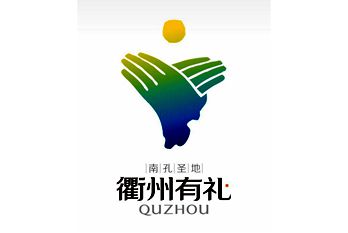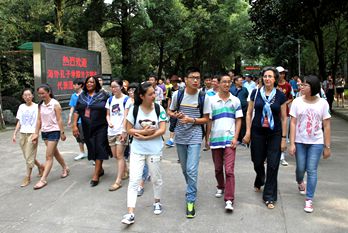Boost to market confidence, growth momentum

An employee tests LED lights at a tech company in Ruichang, Jiangxi province. WEI DONGSHENG/FOR CHINA DAILY
China's recent decision to deepen economic structural reforms will significantly boost market confidence, revive growth momentum, and facilitate the country's sustainable and high-quality development in the next few years, said officials, experts and entrepreneurs.
They estimated that China's economic activity will likely continue to pick up in the remainder of the year, driven by reforms to tackle structural issues, improvement in domestic demand, resilient manufacturing activity and stimulus policy measures.
They, however, warned the economy is still facing challenges from ongoing disinflationary pressures, still-weak consumer confidence, and potential risks in local government debt and the real estate sector. Therefore, more efforts are needed to consolidate the foundation of the ongoing economic recovery, they said.
Their comments came after the recently concluded third plenary session of the 20th Central Committee of the Communist Party of China adopted a resolution on further deepening reform in a comprehensive fashion to advance Chinese modernization.
Li Daokui, director of Tsinghua University's Academic Center for Chinese Economic Practice and Thinking, said as the country is set to roll out a slew of reform measures in the remainder of the year, it is on track for a steady recovery this year.
"Economic reforms in real estate, local government debt and initiatives to promote consumption and enhance social welfare are the three aspects that concern me the most," said Li. "These economic reform measures are soon set to become new drivers of economic development."
According to the resolution, China will establish a system for monitoring and regulating all local government debt as well as long-term mechanisms for preventing and defusing hidden debt risks. And it will refine long-term mechanisms for expanding consumption, reduce relevant restrictions and boost public spending as necessary.
On the property front, the resolution said China will move faster to establish a housing system that supports both housing rentals and purchases and foster a new development model for the real estate sector.
Notably, the resolution said municipal governments will be given greater decision-making powers to regulate the real estate market, and based on local conditions, some cities will be permitted to abolish or reduce restrictions on housing purchases and to scrap relevant standards for ordinary and non-ordinary housing. And the country will also carry out reforms to change the way real estate development is financed.
Looking ahead, Li said the real estate sector will remain a "pillar industry" over the next 15 to 20 years, as around 350 million people, including those now living in rural areas and migrant workers living in cities, will likely buy residential properties in cities in the future.
"There may be excess construction in the short term in certain cities and regions, resulting in a surplus of housing," he said. "However, after this period, likely within one to two years, the overall real estate market is expected to rebound and return to an expansionary phase."
Data from the National Bureau of Statistics showed China's property investment fell 10.1 percent in the first six months of 2024 from a year earlier, flat with the figure in the first five months, as the policymakers' efforts to support the ailing sector took time to revive demand.
Han Wenxiu, executive deputy director of the Office of the Central Committee for Financial and Economic Affairs, said more efforts should be made to speed up the building of a new development model for the sector, better meet residents' demand for basic housing and their need for improved housing, and establish corresponding systems for financing, fiscal and tax policies, land and sales.
At a news conference in July in Beijing, he said that the ongoing urbanization process will offer considerable space for high-quality development in the real estate sector.
Highlighting the country's ongoing deepening reform practices, Han said China aims to drive the transition from its traditional growth drivers to new growth drivers, providing robust support for high-quality development.
Han said key focus should be placed on promoting the healthy development of the property sector and accelerating the development of emerging sectors and future industries.
He emphasized the need to foster new quality productive forces in line with local conditions, saying more efforts should be made to spur emerging industries, develop future industries, upgrade traditional sectors and promote the advanced, smart and green development of the manufacturing sector.
Looking ahead, Han highlighted the necessity to expand domestic demand, notably consumer demand, saying the country needs to fully unleash the potential of domestic demand to prop up the world's second-largest economy.
In its latest efforts to spur domestic demand, China announced in late July that it would allocate around 300 billion yuan in ultra-long-term special treasury bonds to support the program of driving large-scale equipment upgrades and trade-in deals for consumer goods.
According to the document jointly released by the National Development and Reform Commission and the Ministry of Finance, about half of the bond funds will be used for supporting trade-in deals for consumer goods, while nearly half of the funds will be used for driving large-scale equipment upgrades.
Earlier this year, China announced plans to issue 1 trillion yuan worth of ultra-long-term treasury bonds for major national strategies and build up security capacity in key areas in 2024.
Zhou Maohua, a researcher at China Everbright Bank, said China's domestic demand and consumption will likely continue to pick up in the second half of the year, with the implementation of the latest measures to promote the trade-in program, issuance of treasury bonds and policies on stabilizing the real estate sector taking effect gradually.
Global entrepreneurs hailed China's ongoing efforts to deepen reforms and opening-up, saying China's pursuit for high-quality development will create fresh opportunities for global stakeholders.
US-based smart building solutions provider Johnson Controls is optimistic about China's economic prospects. The company said it has seen a number of growth opportunities arising from the country's pursuit of new quality productive forces.
"China has done a lot to create a better business environment for domestic players and their foreign counterparts, including shortening the negative list for foreign investments," said Anu Rathninde, president of Johnson Controls Asia-Pacific. "We wouldn't have been as successful as we are today if that business environment didn't allow us to grow, which is a testimony to the support that we get from the government and the business environment."
According to him, China is one of the most important markets for Johnson Controls and the company will continue to enlarge its footprint in the market.
"We will continue to expand our manufacturing and R&D capabilities. That's our commitment to China — to do business in China and grow as the Chinese market grows," he said.
Zhang Ying, managing director of Dassault Systemes Greater China, said the company has significantly benefited from China's optimized business environment during the past few years.
Looking ahead, he said the company will continue to increase investment in the China market, scale up production and boost innovation and R&D.
ouyangshijia@chinadaily.com.cn

 City brand logo - fist-and-palm salute
City brand logo - fist-and-palm salute Confucianism on campus
Confucianism on campus The culture of the academy
The culture of the academy